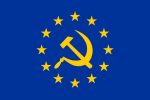My reading definitely collapsed quite badly in the past year as well – I actually spend much more of my time these days reading blog posts, articles, and various alternative news aggregator sites, rather than actual books. I also spent an inordinate amount of time on one non-fiction book, which I list below in the usual way. One could argue, nonetheless, that this year was about quality, not quantity, at least with respect to non-fiction.
I cannot say the same for the fiction books I read. For some reason, the fiction books I read this year were generally much of a muchness, and a couple of authors, like Jay Allan, have absolutely collapsed in the quality of their output. Perhaps, though, that is because 2022 was one of those years – we’ve had several of them in a row now – when reality was far stranger than any kind of fiction.
I still did not expect to see stalwarts like the Galaxy’s Edge series become such tedious slogs, though. Nor did I expect to see the Blood on the Stars series turn into an endless exercise in navel-gazing and hyperbolic soap-quality writing. But, them’s the breaks, I guess.
Still and all, here are Didact’s top reading picks for the past year. Clicking on the images will take you directly to the Amazon webstore, if you fancy downloading them for yourself on the strength of my recommendations.
Didact’s Top Non-Fiction Books of 2022
1. Losing Military Supremacy: The Myopia of American Strategic Planning by Andrei Martyanov

Grandpa Grumpuss is a familiar sight for anyone who regularly peruses the Great Mondaydact Browser Smashers every week – I started watching his commentaries on geopolitics, economics, military strategy and operations, and other matters earlier this year, shortly after the Banderastan War started, and I have been hooked ever since. His gruff, grandfatherly mannerisms and his acerbic wit are both hilarious and informative, and his grouchy personality translates rather well into the written word – as anyone who reads his blog can attest.
In this, the first of his three (soon to be four) books on geopolitical matters, Mr. Martyanov makes a compelling and highly persuasive case for the view that the American military simply does not understand what real war is, because the USA does not understand its enemies, nor itself, nor the true sources of military and economic power, nor the geopolitical and strategic realities of the world today.
Worst of all, America’s military does not understand history, and has built its current capabilities on the basis of an extremely flawed view of the end of the Cold War and its implications.
As Mr. Martyanov shows, the Cold War did not end with a Western victory. It ended with an honourable peace settlement, toward which the USSR had been moving inexorably for decades as Soviet society and citizenry changed away from the Stalinist era.
All of this leads to an extremely dangerous and foolish myopia in terms of American military planning and theories of warfighting, resulting in a woefully underprepared military force that cannot sustain or contain conflict, and which inevitably will escalate to the nuclear threshold because of its inability to fight real conventional wars.
Grumpuss points out that economic, not military, power determines the strength of nations, and comprehensively blows away the absurdist notions that Russia is a weak, technologically backward, small economy with nothing much of use to contribute to military matters. Instead, he uses the Composite Index of National Capability to argue that the US is FAR weaker, and Russia and China far stronger, than Western military planners understand.
And he is absolutely ruthless on the subject of endlessly wasteful and stupid American military boondoggles like the F-35. As he points out, because America does not really understand what actual war is, it continues to spend staggering amounts of money on weapons that do not work, and which will leave its soldiers, sailors, and airmen, horribly exposed and vulnerable against any halfway competent opponent.
This is a book that anyone interested in geopolitics should read, written by a man who trained in the Soviet surface fleet and whose actual background is in figuring out how to sink the US supercarrier fleet. It is, in my view, essential reading, especially if you want to understand how the USSA landed itself in its current mess in Banderastan.
2. The Unseen Realm: Recovering the Supernatural Worldview of the Bible by Dr. Michael S. Heiser

Dr. Heiser’s book is VERY far from casual reading. This is a proper Bible study companion, and I would very much recommend that you buy this in hardcover, along with a proper study version of the ESV Bible, because what you read in this book will really unpack a lot of the mysteries and weirdness that you see in the Bible itself. Many of the passages that your Sunday School teacher might have skipped over, or that your pastor simply could not explain, are unpacked in immense detail here. You will very quickly realise that much of what you were taught about the Bible’s stories is simply wrong. This is where you need to go to understand exactly what the Nephilim are, where daemons come from (basically, the disembodied and extremely destructive spirits of the Nephilim destroyed in the Flood), what angels are like, who and what Satan is (it’s not half as simple as you think), and many other mind-blowing ideas.
The book goes into a great deal of detail about the End of Days, the balance between the allegorical and the literal with respect to how and where and what Gehennah (Hell) is, and why the north was such a forbidding and terrible direction for the ancient Israelites.
This book will help you understand the Bible through the eyes of Second Temple Jews, and will help you understand much more deeply how the Old Testament leads into and binds together the New. You will see and understand the parallels between Christ and Melchizedek, the nature of the Covenant between God and Man, and the sheer power and majesty of God. In the process, you will understand exactly why the life of Christ is of such central importance to Christian belief.
I warn you, though, that this is NOT bedtime reading. It is genuinely deep, difficult, challenging material which you really need to set aside time to read and think about. But, if you take the time, it will reward you immensely.
3. The Psychology of Totalitarianism by Mattias Desmet

I came across this book thanks to #BasedTucker, who interviewed the author for one of his Tucker Carlson Today episodes. In it, Mr. Desmet pointed out the basic realities of how totalitarian philosophies and ideas take hold, and used the collective mental breakdown the entire world suffered during the Scamdemic to explain how we allowed petty little tyrants and madmen to rule over us all.
This is a quick read, relatively speaking, and an easy one, but it delves into some deep and powerful concepts. Some of them are controversial – I am quite sceptical of a lot of the more “pop-psychology” concepts bandied about by far too many mainstream authors these days, and indeed I find the whole field of psychology to be populated largely by quacks and frauds. I say this even though I do think psychological therapy of some kind is not only useful, but for many people necessary.
The key point that Mr. Desmet raises in this book is that, just as mass-formation psychosis sweeps over groups of people, it also catches up its leaders in a self-reinforcing delusion bubble that eventually becomes EXTREMELY difficult to burst. And when that bubble bursts, the reaction is almost always violent and brutal, and leaves its victims deeply ashamed of themselves and of their conduct.
The patterns of behaviour noted in this book are ones that we have all seen over the past few years – the hypocrisy, the shouting down of any and all dissent, the treatment of dissenters as pariahs and outcasts, the persecution of marginalised people, and the heavy-handed attempts to crush and destroy any semblance of free thought and expression.
This book is a warning to all of us. Today, more than ever, as societies abandon God and traditional morality, and turn to fickle and arbitrary governments to determine what is right and wrong, we need to understand that we are making a huge mistake in giving up our freedoms. We need to understand how and why these delusion bubbles form, and we must fight back against them with everything we have.
The consequences for failing to do so have been seen over and over again, and we keep failing to learn from them. Perhaps, after seeing millions around the world becoming red-pilled thanks to the Scamdemic, this might change.
4. The Nazi’s Granddaughter: How I Discovered My Grandfather was a War Criminal by Silvia Foti

These days, I find book recommendations in some of the weirdest places imaginable. This particular one arrived via a Telegram channel I follow, in which the host recommended this as a healthy antidote to the wave of Russophobic hysteria sweeping over Europe after the start of the Banderastan War in February. I started reading it and found it to be an interesting, relatively quick, easy book to get into. While overly melodramatic at certain points, it is essentially one woman’s quest to discover the truth about her grandfather and her family’s history.
This is much more important than one might think at first, because the woman in question is Lithuanian by origin, and the Baltic nations have STILL, to this day, not come to terms with the trauma inflicted upon them during both the Nazi and Soviet occupations of their lands. The Baltic states are rabidly Russophobic, despite having substantial populations of Russian-speakers and ethnic Russians in their midst, and they claim that what the Soviets did to them justifies this hatred and paranoia.
The problem is, they lack all perspective and balance in this view. The reality behind the Soviet occupation is far more complex than they are willing to admit.
In fact, the Soviets did commit many atrocities while they occupied the Baltic nations – but they ALSO conducted a thorough campaign of de-Nazification in Latvia, Lithuania, and Estonia. They did not succeed entirely, however, because all three states still revere a number of men and practices that are outright Nazi in their origins.
To this day, the Baltics still have not fully accepted the role that they played in the Holocaust – and while there is every reason to be highly sceptical of the Holocaustian claims of “six million dead” and so on, there is no doubt in my mind that there was some kind of concerted effort to wipe out Europe’s Jews, conducted by the Nazis.
Many of the men from the Baltics who took part in those atrocities, and in the suppression and brutalisation of the Slavic populations of eastern Europe, have never been fully investigated or brought to justice.
One such man was Jonas Noreika, known as “General Storm”, and regarded in his homeland of Lithuania as a legendary war hero. But, as Mrs. Foti’s work uncovers, he was actually a Nazi officer and enforcer who condemned Jews to their deaths by the hundreds and possibly thousands.
In uncovering these truths, Mrs. Foti has to fight against not only her own memories, but the wishes of her parents and grandmother, her entire family line, and her society – and, eventually, the government of her ancestral homeland.
Even now, opinion in Lithuania remains sharply divided over her work. Some view her as a brave and upstanding truth-teller, willing to do the hard work of investigating a real Nazi war criminal at great personal and emotional cost. Others view her as a traitor who desecrated part of Lithuania’s most important post-war history and ideals.
It is up to you to decide where the truth lies. All I can say is that, knowing what I do of Russians and eastern Europeans, I find it entirely plausible to believe that Nazi ideology simmers just below the surface of many (though not all) of the people of the Baltic states, who still have not processed what they did during WWII, and have taken to using the Russians as convenient scapegoats to excuse their own behaviour at the time.
5. The Real Anthony Fauci: Bill Gates, Big Pharma, and the Global War on Democracy and Public Health by Robert F. Kennedy Jr.

Longtime readers will know exactly what I think of Fraudci by now. I loathe that repulsive evil dwarf, and everything he stands for. But that did not happen by accident. I thought he was a twat at the beginning of 2022, but I really did not understand his true history until I read this book. It delves deeply into Fraudci’s past history, and into his role as the head of the most powerful public health institution in the USA, and, eventually, the world. The details uncovered here are truly shocking.
As malignant and nasty as we think Fraudci is, the truth is far worse than we ever imagined. This one man is responsible for untold amounts of death and suffering over the course of over 50 years in public health – and the Scamdemic was not his first goat-rodeo, either. He actually laid the groundwork for the massive overreaction to a relatively benign virus – if, indeed, that is what the Coof is, and there is good reason for deep scepticism about that – back in the 1980s, with the HIV/AIDS crisis.
Along the way, Fraudci has bullied and abused anyone who dissents from his views of pharmacological intervention. He has destroyed the careers of researchers who disagreed, with sound evidence and good reasoning, with the “mainstream” views that he and his cronies have pushed into the American mind.
A prime example is Dr. Peter Duesberg, once perhaps the foremost virologist in the world on the subject of retroviruses, who has long argued against any causal link between HIV and AIDS. Fraudci essentially destroyed his career, because Duesberg refused to go along with Dr. Robert Gallo and Fraudci in pushing the “standard” line about HIV and AIDS.
This is normal practice with Fraudci, who happily destroys those who disagree with him – simply because he can.
The book goes into great – even excruciating – detail about the realities of AIDS, and points out that in the West, it was and remains a disease spread primarily by homosexual men and intravenous drug abusers – and the statistics bear this out very clearly. But, the standards for AIDS diagnosis in Africa are so slack as to result in millions of people being diagnosed with it, simply because they lose significant amounts of weight in a 30-day period – a condition otherwise known as “being in AFRICA“, since cholera and typhus are so rampant there. The book points out that AIDS in Africa is primarily a disease affecting women, which makes no sense compared to what we see in the West.
Not only is Fraudci a pathological liar and a narcissist, he is also deeply corrupt. The book delves deeply into his personal and financial ties to Big Pharma, and to the ways in which the pharmaceutical companies have pushed research funds his way in exchange for his efforts to promote their products – which turned out in many cases to be utterly disastrous, even lethal, as well as ineffective, in combating viruses.
In this respect, the book ties in well with Virus Mania, which I reviewed late last year. While I do not agree with a number of the latter book’s stronger conclusions with respect to the existence of viruses, I must confess that the events of the last few years have utterly destroyed any faith I once had in the medical community – and yours will be destroyed too, after you read this book.
Just one warning, though – this is NOT an easy read. It is a proper tome and will take up a great deal of your time to go through. But the investment is well worth it.
Didact’s Top Fiction Books of 2022
1. Crisis (Kelly Turnbull Book 5) by Kurt Schlichter

The Kelly Turnbull series has rapidly gone from slightly-right-field fiction, to outright Nostradamus-level prophesying. The scenarios explored in People’s Republic, the first book in the series, seemed rather improbable at the time – all the way back during the naive days before the electoral triumph of His Most Illustrious, Noble, August, Benevolent, and Legendary Celestial Majesty, the God-Emperor of Mankind, Donaldus Triumphus Magnus Astra, the First of His Name, the Lion of Midnight, may the Lord bless him and preserve him.
At that time, you may recall, I predicted that the God-Emperor would win, much to the ridicule and scoffing of my extended family. But he DID win, and he DID defeat the Hilldebitch in the process. That upset the original timeline and plot of the series that Mr. Schlichter planned to write, so he basically rolled with it and retconned the details on the fly, while also jumping around considerably in terms of the timeline.
In this, the fifth book of the series, he goes back to the origins of the split between the United States of America and what eventually becomes the People’s Republic, providing a possible scenario of how the existential tensions that are tearing America apart even as you read this, might result in two countries in the old geographic footprint of the modern USA.
Mr. Schlichter’s writing is compelling, fast-paced, and gripping. I am almost willing to forgive his use of Kelly Turnbull as something of a self-insert – it’s pretty obvious that is what is going on, after all – and the gratuitous amounts of gun-porn are enough to satisfy the most red-blooded among us. I certainly enjoyed the depictions of crazy shootouts and mayhem.
My main criticism of this book is the same as my criticism of the last book of Mr. Schlichter’s that I reviewed – namely, his almost messianic belief in this idiotic notion that America can be easily split up into red and blue states with clear-cut conservative principles.
The reality is far uglier, and the breakup, when it comes, will be far messier than anything Mr. Schlichter can imagine. The coming Second Civil War will be neighbour against neighbour, Black against Asian against Hispanic against White, Pantifag against Proudboy, local authorities against Federal, and on and on down the list. It is going to be a bloody, horrific, fratricidal conflict that will make Somalia look like paradise.
May God help us all when that day comes. Until then – heed Mr. Schlichter’s pleas at the beginning of each of these books, and do everything you can to ensure it doesn’t come to that.
2. Last Contact (Galaxy’s Edge Book 15) by Jason Anspach & Nick Cole

This book, the 15th of the now-18-book Galaxy’s Edge series, was a decent recovery from the nigh-unreadable dreck of the previous instalment. I don’t know what the hell happened to Anspach & Cole, who normally deliver the goods and THEN some, but for some reason, Remains was unbelievably boring and I just could not stay interested. In this book, Zombie Squad continues its efforts to recover Masters, the best-looking leej in the Galaxy (as he himself would tell anyone who cares to listen), while the reformed Legion brings the rain against the Mid-Core Rebellion.
In the process, various parties uncover a very sinister secret linking the Cybar to the ancient Savages who terrorised the Galaxy during the days of Tyrus Rechs. I imagine this will be resolved in the final two books of the series, the first of which I am reading now and will eventually finish.
Overall, the quality of the Galaxy’s Edge series has dipped dramatically since its peak at the end of Season One, and with the three-book miniseries about the birth of the Legion. That series was absolutely AMAZING, but this final set of books is, to my mind, lacklustre.
Nonetheless, this book, in particular, introduces (and, sadly, then kills off) some very interesting characters, and tries hard to keep the plot moving forward at a brisk pace, unlike its predecessors. I still feel as though the series has lost its momentum, though, and I am glad it is coming to an end on what I hope will be a high note.













2 Comments
I was in the same boat this year. Reading a lot more online, less books. Planning on turning that around in 2023.
Unseen Realm is superb in every way. I hope it continues its underground re-shaping of how the English speaking church sees itself. More focus on the Kingdom, less focus on the individual.
I started Science Set Free by Rupert Sheldrake last night based on one of your posts this year, thank you for staying active with books and commenting on them as you go.